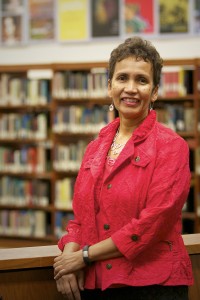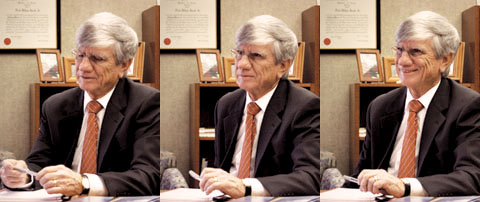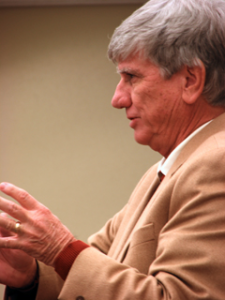Last week, the Texas Exes Dallas Chapter hosted a reception featuring Dr. Lorraine Haricombe, Vice Provost and Director of University of Texas Libraries.
Lorraine shared her highest priorities to:
- Strengthen UT Libraries core mission to support UT’s mission of teaching, research and learning in new and creative ways.
- Fill key positions to align with new roles for libraries in teaching, learning and in the digital environment and to expand collaborative partnerships on campus (and beyond) and re-purpose prime real estate in our libraries to meet the expectations of 21st century learners.
- Position UT Libraries to help transform teaching, learning and research at the University through open access to ensure that the ground breaking research conducted at our University will reach beyond the Forty Acres, nationally and globally.
She also expressed her excitement as UT Libraries is set to open 20,000 sq. ft. of repurposed space in the Perry-Castañeda Library, our main library, where we will partner with the University Writing Center, the Sanger center and others to provide a rich and energizing learning experience for our students.
To close, Lorraine reminded everyone, “supporting the Libraries has the potential to touch the lives of every student, staff and faculty member to ensure that what starts here really does change the world.”
Looking forward, UT Libraries plans to partner with Texas Exes Chapters across the country to host similar events that showcase the work being done at UT. If you are interested in hosting a similar event, please contact Gregory Perrin.







 This
This  We can officially celebrate the completion of the Benson component of
We can officially celebrate the completion of the Benson component of  Two recent publications cap lengthy inquiries into the impact of Web 2.0 upon scholarly communication practices, and each merits review by library administrators and planners everywhere.
Two recent publications cap lengthy inquiries into the impact of Web 2.0 upon scholarly communication practices, and each merits review by library administrators and planners everywhere.